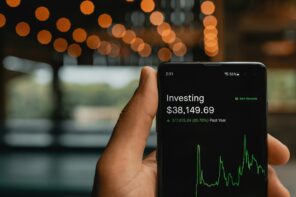The recent turmoil around the globe has caused its fair share of market movements; 2020 has been undoubtedly one of the most volatile and unpredictable years for the world of finance. In an article I wrote one year ago for The Bull & Bear, I discussed how during periods of “disaster,” financial markets seem to tough it out and handle the panic quite well. It is also important to note that in this analysis, market recovery rather than economic recovery, is the main focus. 2020 has been no exception to this, but something very different has come into recent light. Robinhood is a financial services company based in the United States, which allows users to invest in various market instruments through easy-to-use mobile and web applications. The rise of Robinhood meant that nearly anyone with a few spare dollars lying around and an internet connection could actively trade within US markets. As the front page of their website mentions, Robinhood enables “investing for everyone.”
When the casinos closed for safety, it seems as though many turned towards financial gambling for their new ventures.
When the casinos closed for safety, it seems as though many turned towards finance for their new ventures. In fact, Robinhood added 3 million accounts in the first four months of 2020. Behavioural finance and investor sentiment has always played an important role in the way certain stocks (and even the market as a whole) have behaved. It is no surprise that panic about COVID-19 caused a significant crash, whereas positive news about re-openings and job reports supported an equally significant recovery. But markets don’t usually work this way, and one of the most significant financial rallies in history was caused simply by a large enough group of amateurs ignoring basic risks. So when an influx of completely amateur investors, such as the ones using Robinhood (dubbed frequently now as “Robinhooders”, or the “Robinhood Army”) are able to suddenly control the financial markets, a lot begins to change.
According to one article from BNN Bloomberg, investors are starting to use dangerously risky algorithms to invest in near-bankrupt companies, who are often in serious amounts of debt. And if one Robinhooder has enough faith in his amateur brothers and sisters acting on the same risky investment, their strength in numbers will change the way securities are impacted by the news forever. And, in the simplest terms, the more popular a stock is, the higher the price can launch itself upwards.
When an influx of completely amateur investors are able to suddenly control the financial markets, a lot begins to change…
Changing basic market principles and dynamics is not the only thing that the Robinhood Army is capable of doing. The thought of easy and comfortably gained riches through the platform has lured many young traders into horrible positions. According to a New York Times article, half of all Robinhood users have never even invested before. The past year has been littered with Robinhood horror stories, some of which end in truly tragic events, such as the suicide of a college student who found himself in a loss of over $700,000 on Robinhood. If one views the market as an entity which constantly reacts to global events, this new wave of Robinhood traders has somehow managed to take total control of this entity, and give it a personality of its own. One can only hope that the market’s reactivity will eventually adjust to this seemingly newfound hobby across the United States.








